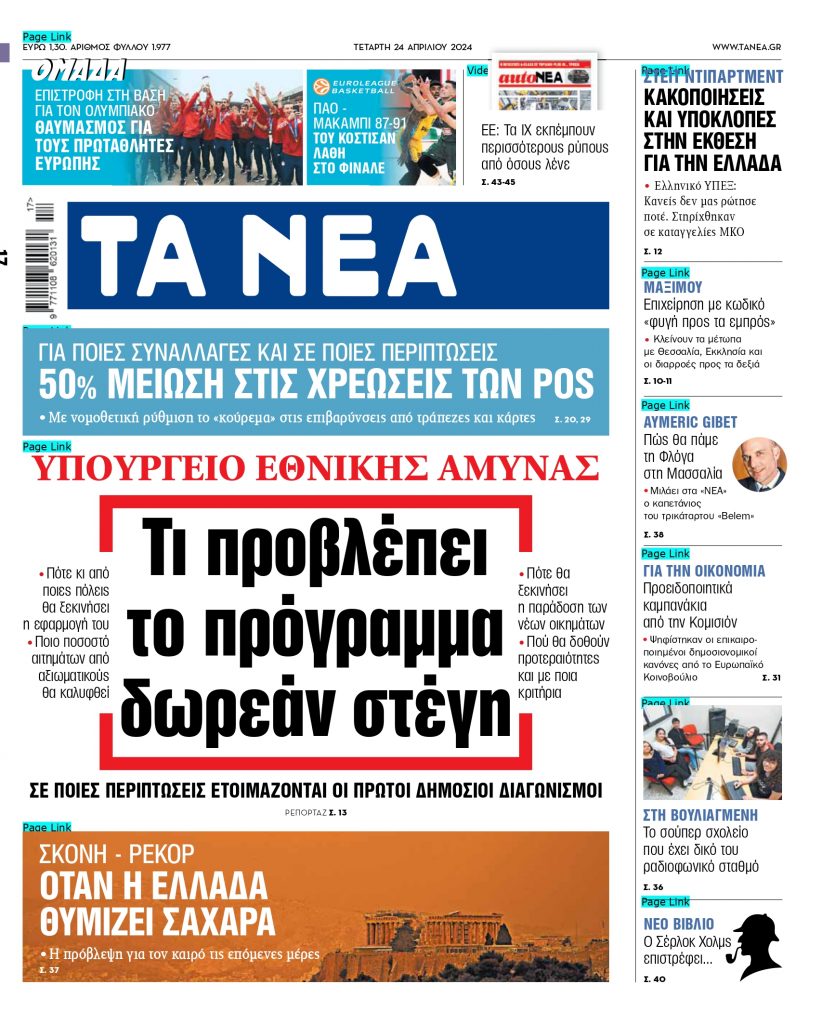The Novartis affair certainly requires judicial investigation – but also journalistic.
This is not only because responsibility must be assigned wherever it is due, but also in order to remove the shadow from the names of those who may be unjustly implicated in the case.
The probe, in other words, has a dual aspect, with the final objective always being to let the truth shine.
Yet, no case requires political exploitation. No scandal is illuminated when it becomes the object of political disputes, and when it is used as a font of arguments for mutual recriminations. On the contrary, such developments obfuscate the substance of the matter.
In the end, those who lose out are the citizens, the very people who have the right to know who betrayed their trust or lined their pockets at their expense.
From the angle of petty partisan exploitation, political sparring of this sort is counter-productive. Rarely do they yield the gains expected by those who try to benefit from it.
What usually happens is that the entire political system is maligned. Citizens are given the impression that corruption does not involve isolated individuals, but rather is generalised, and prevails everywhere.
The current juncture gives rise to suspicions that the government is attempting to politically exploit the affair, either in order to shift the political agenda, or to assume the mantle of moral purity, so as to indiscriminately and collectively accuse all previous governments of corruption, and to drag the public dialogue into the arena of scandal-mongering.
That is a far cry from a true investigation of what is considered a scandal.
